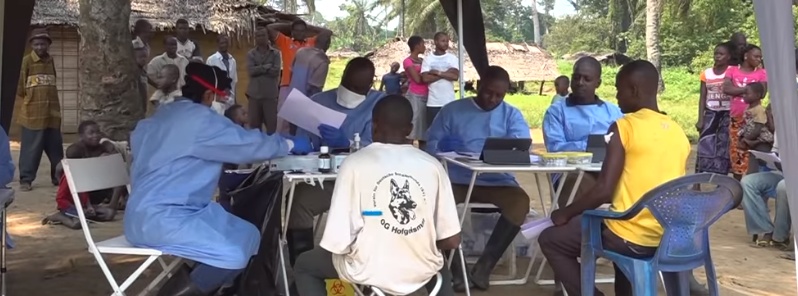WHO: Ebola outbreak could create a ‘perfect storm’ over the next weeks and months

Ebola outbreak in the northeastern Democratic Republic of Congo could rapidly worsen and create a potential perfect storm over the next weeks and months, WHO said September 25, 2018. The worsening situation is expected due to attacks by armed groups, community resistance and the geographic spread of the disease.
As of September 23, a total of 150 cases have been reported in DRC. Of those, 119 have been confirmed as well as 69 deaths (of 100 reported).
"We are now extremely concerned that several factors may be coming together over the next weeks and months to create a potential perfect storm," WHO’s head of emergency response Peter Salama said today at a news conference in Geneva.
"The response was at a critical juncture, and although the weekly number of new cases has fallen from about 40 to about 10 in the past few weeks and more than 11 700 people have been vaccinated, there were major obstacles ahead," Salama said.
Pockets of 'reluctance, refusal and resistance' to accept Ebola vaccination were generating many of the new cases, Salama said, as reported by Reuters.
"We also see a very concerning trend. That resistance, driven by quite natural fear of this terrifying disease, is starting to be exploited by local politicians, and we’re very concerned in the run-up to elections, projected for December, that that exploitation… will gather momentum and make it very difficult to root out the last cases of Ebola."
WHO officials said Uganda is now facing an imminent threat, adding that social media posts are conflating Ebola with criticism of the DRC government and the UN and 'a range of conspiracy theories.' This could put health workers at risk, they said.
The abovementioned reasons have made WHO to develop a range of contingency plans to see where their staff is best located.
"If WHO and its partners had to leave North Kivu… we would have grave concerns that this outbreak would not be able to be well controlled in the coming weeks or months."
At the beginning of the month, two planes at the Philadelphia airport, 1 at the JFK, US and one at a French airport have been quarantined because of passengers complaining of flu-like symptoms, coughing, fever and vomiting.
According to the WHO, the initial symptoms of Ebola are sudden onset of fever and fatigue, muscle pain, headache and sore throat. This is usually followed by vomiting, diarrhea, rash, impaired kidney and liver function, spontaneous bleeding internally and externally (in some cases).
The virus is transmitted to people from wild animals and then spreads in the human population through human-to-human transmission.
The incubation period is 2 – 21 days but humans are not infectious until they develop symptoms.
Featured image credit: WHO

Commenting rules and guidelines
We value the thoughts and opinions of our readers and welcome healthy discussions on our website. In order to maintain a respectful and positive community, we ask that all commenters follow these rules:
We reserve the right to remove any comments that violate these rules. By commenting on our website, you agree to abide by these guidelines. Thank you for helping to create a positive and welcoming environment for all.